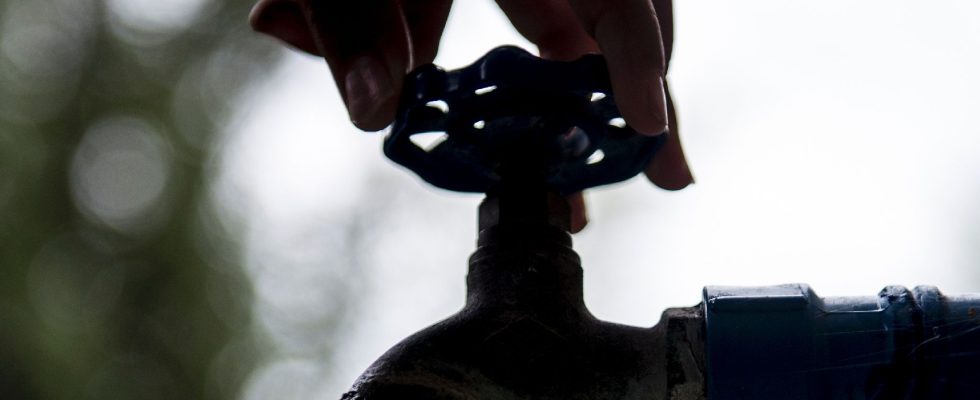France will run out of fresh water and elected officials, like the population, have not yet measured the extent of the problem. In a report released this Monday, July 3, the Academy of Technologies is sounding the alarm and looking at the solutions that our country will have to put in place. Some measures, such as water reservoirs in the mountains or meters in farmers’ homes, are not going to please. Interview with Yves Levi, vice-president of the Environment and impact of climate change division.
L’Express: Why is the Academy of Technologies publishing this report a few months after the Water Plan announced by the executive? Is this insufficient?
Yves Levi: You cannot compare the two. We do not have the vocation to make a national plan for everyone. We have focused on one of the elements of this strategy, namely technologies useful for the production of fresh water. In the path traced by the government, we see that we must go more towards the reuse of wastewater. But the other technical possibilities are not mentioned. We therefore looked into water desalination or even storage. But the starting point for our reflection is the worrying situation in France. I will not throw stones at all those who discover the subject of the lack of fresh water in France. But I think that the whole of the national community did not realize how things were accelerating and becoming truly tragic. The reduction in average and low water flows will worsen in the dry period, inducing impacts on water quality, and increasing conflicts of use. Evapotranspiration is becoming an important phenomenon, and this is not good news. We will have to adapt. The problem is that we have fallen behind.
What are the solutions that France will have to implement?
Much has been said about the reuse of wastewater. This can indeed be interesting, as can groundwater recharge, a practice already at work in certain regions such as Ile-de-France. However, we will also have to ask ourselves the question of desalination. For the moment, this one is not economically interesting. But that could change in the future. Given global warming, more and more people will move and seek to live by the sea, hoping to find a little more freshness there. Some towns – this is particularly the case in Vendée – could lack fresh water in the summer periods marked by overpopulation.
For these towns, desalination will perhaps become essential in about fifteen years. We also thought about the case of the mountain. Let’s imagine that in 40 years, there will be almost no more snow. If we want to support the flows of the rivers, we will no doubt have to multiply the hill reservoirs. Will the people accept it? It will have to be shown that it is a public interest installation, making it possible to increase the flow of rivers, to support fish and to distribute drinking water, and not an initiative solely benefiting to a small private group.
Will the famous basins also be part of the options?
Yes, provided you do things right and don’t find yourself drowned by ideology. If in a region affected by the lack of water, all of the players – industrialists, farmers, public authorities – agree to store water in this way, if withdrawals from the aquifer take place in winter when it is full and this process remains well controlled by geologists, and finally, if half of the water does not evaporate, then there is no problem. But you can clearly see that this is a complex subject, which is neither all white nor all black. In the same way, the situation in Lorraine is not the same as in the South-West where the lack of water is felt much more strongly. Adaptation will therefore be local, on a case-by-case basis. This presupposes a precise inventory of needs.
Has this work been done?
If you ask the president of a community of municipalities in a large city, or a mayor, what are the water consumption items – washing trucks, streets, public buildings, swimming pools… – on which we can start lower the levies, I’m afraid he’ll tell you he doesn’t know. So, one of the key points of the report is to say that we should not throw ourselves into technology by saying that we are going to “make water”. Let’s start by making forecasts of the evolution of the resource. This was done, to a certain extent, by the water agencies and certain large communities of communes which had sensed the problem coming. So we are not starting from zero. But so far, this work has been progressing slowly. We did not feel the big crisis coming. From now on, the year 2022 has shown it, we are getting into the hard part.
